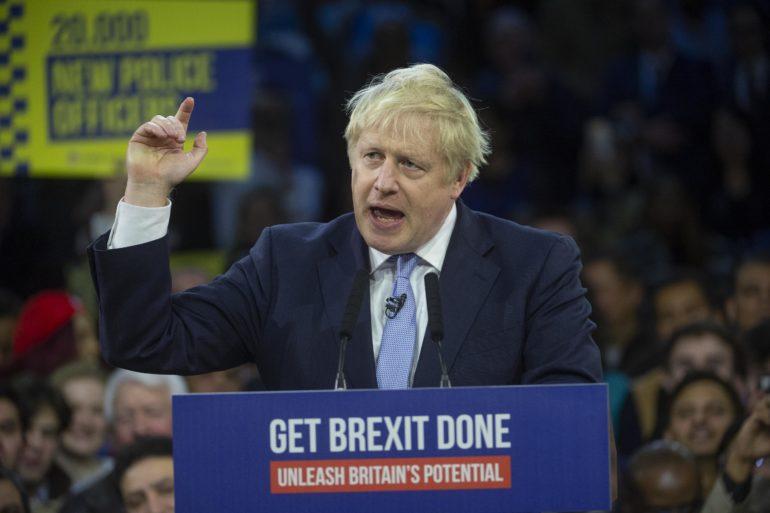British Parliament Gives Preliminary Approval to E.U. Withdrawal Plan
By Stewart Clarke
LOS ANGELES (Variety.com) – Britain will formally exit the European Union on Jan. 31 under a withdrawal plan given preliminary approval by Parliament on Friday.
Lawmakers in the House of Commons voted 358 to 234 to push forward the Brexit plan proposed by Prime Minister Boris Johnson. Although previous withdrawal bills had faltered, its passage this time was made possible by last week’s U.K. general election, which saw Johnson’s Conservative Party win a healthy 80-seat majority in Parliament.
Johnson’s predecessor, Theresa May, failed on several occasions to get a bill passed. Ahead of the vote, Johnson, who had campaigned during the election on his ability to deliver , told MPs that his bill “ensures Brexit will be done” and “it will be over.”
Friday’s approval was on a so-called second reading of the withdrawal bill, meaning an agreement with its general principles. It is now subject to further debate and refinement by both the House of Commons and House of Lords.
If the withdrawal bill passes all stages, the U.K. will formally leave the European Union on Jan. 31. However, virtually nothing will change immediately. A transition period until the end of 2020 means that the U.K. will abide by many E.U. rules and regulations while it works through the details of its exit. Johnson’s bill limits the government from extending that transition beyond 2020. Britain now needs to negotiate trade deals with the E.U. and other major partners such as the U.S.
The massed ranks of the film and TV business are mostly opposed to Brexit. Specific concerns include backing for distribution of non-English-language movies in the U.K.; the freedom of movement for professionals in Britain’s film and TV sectors, which boast a healthy contingent of talent from the E.U.; and the registration of British TV channels. Many international networks had operated throughout Europe using a U.K.-issued license, but the likes of Discovery, Turner and Viacom have already preempted Brexit concerns by moving some channel operations to continental Europe.
Commercial broadcasters are also concerned about the wider economic effects of Brexit and an ensuing impact on advertising budgets. ITV chief Carolyn McCall has warned that advertisers have been holding back spending as part of their contingency planning.

